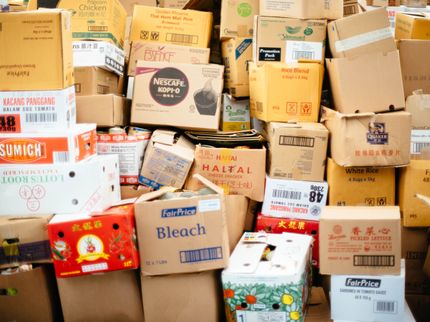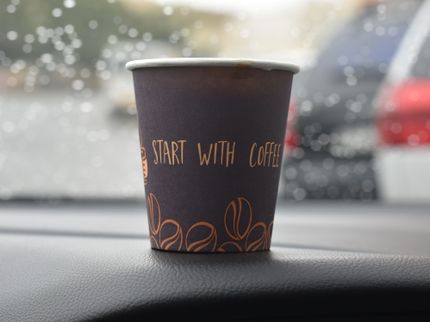Recycled plastics in food packaging
HSBI business law students in cooperation with Spies Packaging
Advertisement
It remains after every week's shopping - the packaging waste that is disposed of immediately after shopping. The production of plastic packaging requires considerable amounts of resources such as crude oil and energy. In view of the short useful life of packaging, it is more sustainable if it can be recycled and fed into a functioning material cycle for reuse after use. In order to drive change in this area, European legislation stipulates that recycled plastics must increasingly be used for the production of certain plastic packaging from 2030. However, the quality of the recyclates produced varies greatly. In the production of food packaging, this results in a tension between the implementation of the specifications and the highest food safety requirements. As part of the latest InCamS@BI Makeathon, three students on the Master's degree course in Business Law at HSBI worked together with Spies Packaging on this business law challenge.
"We face the challenge of complying with the strict EU regulations on the use of recycled plastics in food packaging, but this is currently still at odds with other regulations." Georg Schengber is Head of Quality Management at Spies Packaging in Melle. In his experience, various factors mean that his company cannot easily use recycled plastics, so-called recyclates: "Regulatory hurdles, limited availability of the material and high food safety requirements make the use of recycled material considerably more difficult." Spies Packaging has been producing food packaging for more than sixty years. From 2030, European legislation stipulates that recycled materials must be used proportionately for certain packaging.
At the same time, the Food Regulation imposes strict requirements to ensure food safety. In the area of conflict between the implementation of sustainability legislation and the requirements of the Food Regulation, the company sought expertise in commercial law and therefore took part in the third Makeathon of the Innovation Campus for Sustainable Solutions (InCamS@BI) transfer project at Bielefeld University of Applied Sciences (HSBI). "The EU's new regulations on the use of recycled plastics in packaging are currently affecting almost all manufacturing industries, as transport packaging is also affected," reported Prof. Dr. Christiane Nitschke, Professor of Business Law at HSBI, at the start of the Makeathon. Together with Kristin Maoro and Micha Steiner from the InCamS@BI Business Law research group, the professor coordinated the event, which took place for the second time in a row this year under the title "Business Law in Transfer", and invited companies from the region to present the students with "challenges".
Commercial law in business practice - the specific questions posed by Spies Packaging
Three students from the Master's in Business Law, Emily Holzhauer, Vivien Oppermann and Nico Demand, worked on the Spies Packaging challenge. The trio had one semester to complete the project. The small group regularly consulted with their lecturers from the Business Law research group and informed themselves about the legal basis relevant to the use case, such as the Packaging and Packaging Waste Regulation (PPWR), which stipulates that packaging containing plastics must - with a few exceptions - contain a minimum proportion of post-consumer recyclate (PCR) from 2030. This refers to plastic material that is disposed of after use by end customers and then recycled using a suitable process. However, the availability of PCR is limited, particularly for the production of food packaging. This is because the plastics collected for recycling can be chemically contaminated by residues from detergent packaging, for example. Furthermore, it cannot be ruled out that disposed packaging was previously used by end customers for other purposes - for example to store paints or fuels - which introduces pollutants into the mechanical recycling cycle.
The students also looked at whether legislation also allows post-industrial recyclate (PIR), i.e. reprocessed, in-house production rejects, to be used to meet the requirements. In this case, the origin of the recycled plastics would be known to the manufacturers and contamination by residues would be ruled out. They also checked whether parts of the packaging produced by Spies Packaging could be classified as "non-food contact", meaning that less stringent recyclate requirements might apply to these packaging elements. Holzhauer, Oppermann and Demand also looked at suitable recycling processes specifically for food packaging.
The company invited the students to visit its site in Melle so that the small group could better investigate the possibility of meeting the recyclate quotas. "We were able to get to know the manufacturing processes and the machines used on site," reported Oppermann. "The background knowledge helped us a lot in our targeted analysis of the legal regulations."
The content work phase was followed by pitch training with Amir Giebel, innovation management consultant, at the end of May. The aim of the training was to communicate the results in a targeted and convincing manner. Giebel, a member of the InCamS@BI Innovation Management research group, gave the students tips on slide design and presentation. The students were also filmed during their pitches so that they could better analyze their own presentation style. The students were thus well prepared for the next step - the presentation of the results of the Makeathon to the entire group - and the representatives of Spies.
Business law students open up new perspectives for Spies Packaging
"Spies Packaging is fundamentally subject to the requirements of the PPWR. However, there are a few aspects to consider when it comes to meeting the minimum recycling rates," said student Emily Holzhauer, introducing the presentation of the Makeathon results. For example, in the specific area of application of the PPWR in the production of packaging for food, it should be noted that the use of recyclates is only mandatory if health risks can be ruled out. "This is the case if the post-consumer recyclates are treated using a suitable process. However, such a process does not yet exist," explained Holzhauer. The legislator is deliberately encouraging companies to observe or actively help shape research in this area, the students emphasized.
When asked whether parts of the food packaging produced could be classified as "non-food contact", a look at the legislation provided a clear answer: "The packaging produced is legally considered a unit that is intended to come into contact with food," explained Oppermann. "A division into packaging components with and without food contact is therefore not possible." The verdict of the young business law experts was also negative regarding the possible use of post-industrial recyclate. According to current legislation, post-consumer recyclate should be used to fulfill the recyclate quota.
Holzhauer, Oppermann and Demand were currently unable to resolve the tension between sustainability legislation and ensuring food safety for Spies Packaging. However, they advised the company to continue monitoring the future development of legislation. The business law experts also recommended that the food packaging manufacturer actively engage with the Federal Ministry for the Environment or a group of external experts on the Packaging Ordinance as an advisory body to the European Commission. "For us, the Makeathon was an opportunity to gain insights into the professional world at an early stage," summarizes Nico Demand. Jens Huchzermeier from Spies Packaging praised the harmonious and successful cooperation with the students. Even though no final solutions have yet emerged from the Makeathon, they were impressed by the students' professional approach. "A future collaboration with a student in the form of a practical phase at the company is already firmly planned."
The InCamS@BI Makeathon as a model for success
In addition to Spies Packaging, Wago and Continental also took part in the Makeathon this year. The 21 Master's students worked on a total of seven different challenges. They dealt with other current topics from commercial law such as liability and copyright in relation to artificial intelligence, the digital product passport and the use of contract lifecycle management software. Wago took part in the Makeathon for the second time this year. "The Makeathon is a successful model for us. We really enjoyed the contact with the students and the external, fresh perspective last year, which is why we were looking forward to working together again," emphasized Kathrin Sawatzky, Manager for Product Sustainability at Wago. Her company also wants to offer internships. Philipp Schmidt-zum Berge from Continental emphasized that the results of the student group were an excellent basis for further use in the company.
The third InCamS@BI Makeathon ended on a particularly practical note, as Wago had made its premises available for the presentation of the results. At the end, the students and company representatives had the opportunity to take a look at the company's production facilities. "I am delighted that our Makeathon has once again led to exciting collaborations between our students and companies," said Prof. Nitschke. "The Business Law in Transfer module is a benefit for our students, enabling them to understand connections in everyday business life using practical examples and to transfer these to legal issues. Communication with non-lawyers can be trained very well here, which is an important interface skill. The Makeathon principle is an example of the practice-oriented concept of research and teaching at HSBI.
This year, the Business Law research group will host two more expert panels on the subject of the Packaging Ordinance as part of the InCamS@BI transfer project. The expert panels are made up of representatives from companies and the InCamS@BI team. Current research topics and possible applications or new developments are discussed in a confidential format.
Note: This article has been translated using a computer system without human intervention. LUMITOS offers these automatic translations to present a wider range of current news. Since this article has been translated with automatic translation, it is possible that it contains errors in vocabulary, syntax or grammar. The original article in German can be found here.
Other news from the department science
Most read news
More news from our other portals
See the theme worlds for related content
Topic world Food safety
Food safety is at the heart of the food and beverage industry. It ensures that the food we eat every day is not only nutritious, but also free of harmful contaminants. From field to plate, the industry monitors and regulates every step of the process with strict quality controls, advanced testing methods and continuous research.

Topic world Food safety
Food safety is at the heart of the food and beverage industry. It ensures that the food we eat every day is not only nutritious, but also free of harmful contaminants. From field to plate, the industry monitors and regulates every step of the process with strict quality controls, advanced testing methods and continuous research.
































































